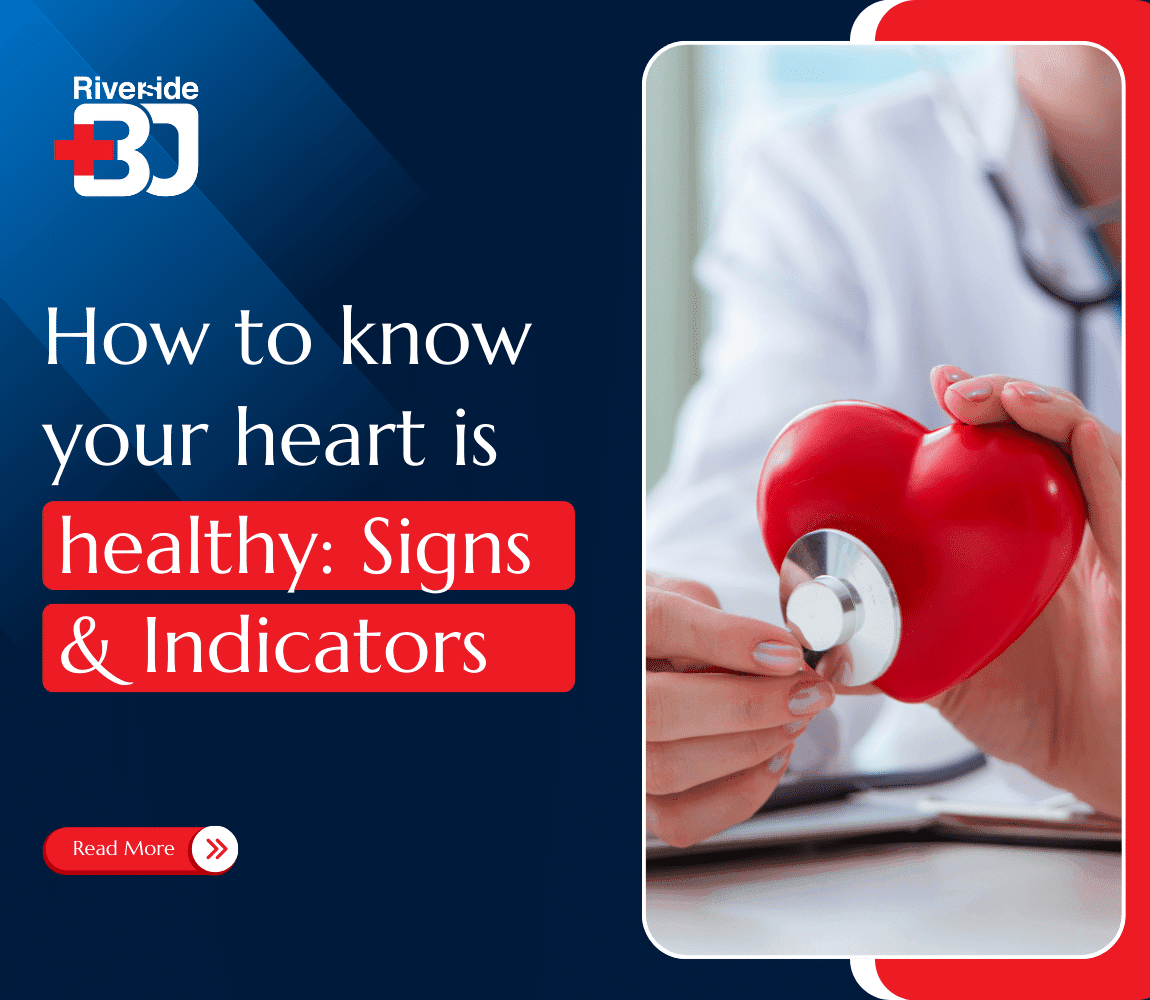A healthy heart is the key to a vibrant life. Understanding how to know your heart is healthy empowers you. It helps to maintain your well-being, preventing potential issues, and making informed lifestyle choices for long-term cardiovascular health.
Consider these statistics:
- Globally, CVD remains the leading cause of death, with an estimated 17.9 million fatalities annually, as reported by the WHO.
- According to NHS England, in the UK, cardiovascular diseases (CVDs) affect around seven million people. It causes one in four premature deaths.
- Meanwhile, according to the CDC, in the United States, heart disease claims one life every 33 seconds. It is today the top cause of death.
These figures highlight the importance of heart health awareness. By recognising key indicators and adopting a heart-healthy lifestyle, you can significantly reduce your risk of cardiovascular diseases.
But how to know your heart is healthy? We must understand the key signs of good heart health. Knowing how I know my heart is healthy and learning simple ways to maintain it, are all essential.now if your heart is healthy? We must also understand the key signs of a strong heart and simple ways to maintain it.

Key Indicators of Heart Health
How to know your heart is healthy involves looking at several important indicators. While some require medical tests, others can be observed in daily life. Paying attention to these factors helps prevent complications and, in turn, keeps your heart strong.
Moreover, understanding the signs of good heart health makes it easier to take proactive steps. Whether it’s monitoring your pulse or staying active, each aspect plays a role.
Now, let’s explore the essential indicators of a healthy heart.
- Heart Rate (Pulse):
A steady pulse suggests a well-functioning heart. The normal resting rate is 60–100 beats per minute. However, lower numbers often indicate better cardiovascular fitness.
Checking your pulse on the wrist or neck helps track the heart’s efficiency. It is important to note that sudden fluctuations signal underlying issues. Monitoring the heart rate is essential when assessing how to know your heart is healthy.
- Blood Pressure:
Healthy blood pressure keeps the heart functioning efficiently. Normally, 120/80 mmHg is the ideal range, while higher readings increase heart disease risks.
Additionally, stress, diet, and genetics influence fluctuations. Both high and low readings require attention. To evaluate how to know heart is healthy, routine monitoring and lifestyle adjustments are necessary.
- Cholesterol Levels:
Cholesterol balance significantly impacts heart health. LDL (bad cholesterol) narrows arteries, whereas HDL (good cholesterol) helps maintain blood flow.
A key part of how to know your heart is healthy is keeping cholesterol levels in check with proper diet, exercise, and blood tests.
To fix this, a balanced diet and exercise should be done, and processed foods should be avoided. Additionally, regular blood tests determine whether levels are within a healthy range. Tracking cholesterol is crucial for a healthy heart.
- Blood Sugar Levels:
High blood sugar damages arteries and increases cardiovascular disease risks. A fasting glucose test confirms whether levels are safe.
Excessive sugar, unhealthy eating, and inactivity contribute to imbalances. However, a balanced diet and exercise maintain stability. Monitoring glucose regularly helps determine how to know your heart is healthy.
- Physical Fitness and Activity Levels:
How to know your heart is healthy often begins with evaluating your physical fitness and activity levels. An active lifestyle strengthens the heart. Additionally, 150 minutes of moderate exercise weekly enhances circulation and endurance. Hence, reducing disease risks.
Walking, swimming, and cycling improve cardiovascular efficiency. A sedentary lifestyle weakens heart function. Regular activity tracking supports long-term wellness and helps to establish your heart health.
Tracking these indicators provides valuable insights and answers people who ask, “How do I know my heart is healthy?”. While regular check-ups help, lifestyle choices play an equally crucial role.
Small adjustments, such as staying active and eating well, make a significant difference. Prioritising heart health today leads to a stronger, healthier future.
At-Home Assessments
How to know your heart is healthy does not always require medical tests. In fact, simple home assessments can reveal important insights. Moreover, these quick tests help you track heart functions without specialist equipment.
Monitoring your heart’s response to activity allows early detection of potential concerns before they become serious. These self-checks offer a convenient way to understand how to know your heart is healthy through daily habits.
- Stair Test:
Climbing stairs can be a quick way to assess cardiovascular health. If you can climb four flights in under a minute without breathlessness, your heart is likely strong.
However, struggling with mild exertion may signal reduced fitness. Regularly testing yourself provides insights into your health.
- Aerobic Exercise Response:
A healthy heart adapts efficiently to exercise. After moderate activity, your pulse should return to normal within one minute. A slow recovery suggests reduced cardiovascular fitness.
Noticing changes in exercise response is one way to determine how to know your heart is healthy. Staying active improves this crucial indicator.
These simple assessments provide useful clues about heart health. Although they cannot replace medical evaluations, they help track fitness levels. Recognising small changes early encourages healthier habits. Hence, helps in preventing serious issues.

Signs of a Healthy Heart
Recognising the signs of a healthy heart that is well functioning is essential. In fact, small daily indicators often reveal much about your cardiovascular health.
While many rely on medical tests, simple observations at home can be equally effective for understanding how to know your heart is healthy.
Below are three key signs of good heart health that indicate how to know your heart is healthy and functioning efficiently.
- Normal Breathing:
Effortless breathing during daily activities signs of a healthy heart system. If light exercise doesn’t cause shortness of breath, it’s a positive sign. Moreover, proper oxygen circulation supports lung efficiency. Those with good endurance rarely struggle with breathing.
If you’re questioning how to know heart is healthy, observe how your breathing responds to exertion. However, persistent breathlessness could indicate underlying concerns requiring medical evaluation.
- Good Oral Health:
Oral health and heart health are more connected than you think. For instance, gum disease can increase heart risks by promoting inflammation. Strong gums and clean teeth suggest your body is fighting harmful bacteria effectively.
To analyse how to know your heart is healthy, check your gums. Healthy gums indicate good circulation. Brushing and flossing regularly support both dental and cardiovascular health.
- Quick Heart Rate Recovery:
A fast heart rate recovery after exercise is an excellent indicator of cardiovascular fitness. If your pulse returns to normal within a minute, it’s a sign of a strong heart. Moreover, a lower resting heart rate suggests efficiency.
If you want to understand how I know my heart is healthy, measure recovery time after physical exertion. A slow recovery might signal underlying issues requiring attention.
Recognising these signs helps in understanding heart health better. While breathing, oral hygiene, and heart rate recovery provide valuable insights, medical check-ups remain essential.
Combining lifestyle awareness with regular assessments ensures long-term well-being and answers how to know your heart is healthy.
Lifestyle Factors Supporting Heart Health
Wondering how to know your heart is healthy? Start with daily habits that support circulation, lower cardiovascular risks, and improve your overall physical health.
The right habits promote better circulation, lower disease risk, and improve overall health.
Let’s explore some practical tips for improving heart health –
- Balanced Diet:
Eating the right foods strengthens cardiovascular function. For example, eating wholegrains, lean proteins, and healthy fats supports circulation. Additionally, fruits and vegetables provide essential nutrients. Whereas, eating sugary foods can lead to diabetes that affect heart health.
If you’re curious how to know your heart is healthy, assess your diet. Consuming processed foods regularly may increase risks. Instead, a nutrient-rich diet lowers cholesterol and regulates blood pressure, keeping your heart in optimal condition.
- Regular Exercise:
Movement plays a vital role in heart health. Daily activity boosts circulation, strengthens the heart muscle, and lowers stress. Moreover, a sedentary lifestyle increases heart-related risks.
Walking, cycling, or strength training improves endurance. More importantly, staying active reduces the likelihood of developing cardiovascular diseases.
- Adequate Sleep:
Quality sleep allows the heart to recover and function properly. Whereas, poor rest increases stress hormones and leads to hypertension. If you’re wondering how to know your heart is healthy, monitor your sleep patterns.
Consistently sleeping less than six hours raises the risk of heart disease. On the other hand, deep sleep regulates blood pressure and promotes overall heart efficiency.
- Non-Smoking:
Smoking severely damages blood vessels and increases the likelihood of heart disease. Even occasional smoking affects circulation. If you’re still questioning how to know your heart is healthy, you can also consider your exposure to tobacco.
Avoiding cigarettes significantly improves cardiovascular health. Quitting smoking reduces the risk of heart attacks and stroke. Therefore, it is one of the most effective ways to protect your heart.
Maintaining a healthy heart requires consistent effort. Balanced nutrition, exercise, proper sleep, and avoiding smoking contribute to overall wellness.

Conclusion: How to know your heart is healthy
A strong heart enhances overall well-being. Daily habits influence long-term cardiovascular health. In order to understand how to know your heart is healthy, assess lifestyle choices. Consistent exercise, balanced nutrition, and quality sleep contribute significantly.
Moreover, avoiding smoking and managing stress to protect heart function. Small adjustments create lasting benefits. Prioritising health reduces disease risks while improving energy levels. If you are still questioning how to know your heart is healthy, consider regular self-assessments.
Riverside B&J Hospital provides expert guidance on heart health. Visit us now for tailored wellness solutions. Your heart deserves the best!
FAQs on ‘How to know your heart is healthy’
1. How Can I Check My Heart Health At Home?
Simple tests like monitoring pulse, tracking breathing, and performing light exercises help assess heart function. These methods assist in understanding how to know your heart is healthy effectively.
2. What Lifestyle Habits Support A Healthy Heart?
Maintaining a balanced diet, exercising regularly, and managing stress contribute to long-term heart health. These habits also play a crucial role in knowing how to know your heart is healthy and preventing disease.
3. Does Sleep Affect Heart Health?
Yes, inadequate sleep increases stress and blood pressure, negatively impacting cardiovascular health. For those wondering how do I know my heart is healthy, getting enough rest supports overall heart function.
4. How Often Should I Check My Blood Pressure?
How to know your heart is healthy includes tracking your blood pressure. Routine checks are essential, especially for those with risk factors, to detect early concerns.
5. Can Stress Harm The Heart?
Yes, prolonged stress elevates blood pressure and heart rate, increasing cardiovascular risks. Practising relaxation techniques like meditation promotes better heart function.

